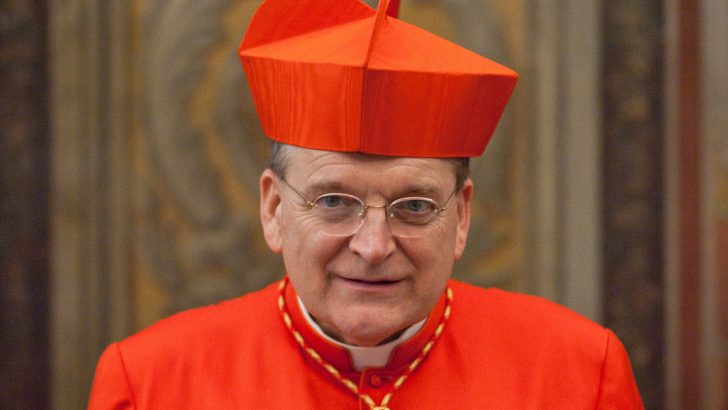Cardinal Raymond Burke once again has promised to “correct the situation” over what he believes to be confusion surrounding Pope Francis’ controversial 2016 document on marriage and the family, Amoris Laetitia.
The American cardinal was speaking during a Q&A session after a presentation at Saint Raymond of Peñafort parish in Springfield, Virginia in the US.
Burke, formerly the head of the Vatican’s highest appellate court until removed by Francis, currently serves as the patron of the Sovereign Military Order of Malta, although that position is largely nominal at the moment given the Pope’s appointment of a personal delegate to the order.
Clarification
Four cardinals – Burke, Italian Carlo Caffarra, and Germans Walter Brandmüller and Joachim Meisner – sent five ‘dubia’ [yes-or-no questions] asking clarification on Amoris Laetitia, particularly on the matter of divorced-and-remarried persons receiving Communion, to Francis and Cardinal Gerhard Müller, the head of the Vatican’s doctrine office.
After Francis didn’t respond, the cardinals made their questions public, and Burke said they would present a “formal correction” of the Pontiff if the questions remained unanswered.
In Virginia, Burke reiterated he “sincerely hoped” the Pope would eventually respond to the dubia.
“Until these questions are answered, there continues to spread a very harmful confusion in the Church, and one of the fundamental questions is in regards to the truth that there are some acts that are always and everywhere wrong, what we call intrinsically evil acts, and so, we cardinals, will continue to insist that we get a response to these honest questions,” Burke said.
The cardinal said he wanted to make “very clear” he and the other three cardinals did not mean to be disrespectful or arrogant, but said presenting dubia to a Pope “is a traditional way in the Church of seeking clarification in times of confusion”.
Burke reiterated that if an answer does not come, he and the other cardinals “simply will have to correct the situation”.
The publication by the cardinals of their private letter to the Pope last November caused controversy, and Müller said he was “amazed that this became public, essentially constraining the Pope to say ‘yes’ or ‘no’. I don’t like this”.


 Cardinal Raymond L. Burke
Cardinal Raymond L. Burke 